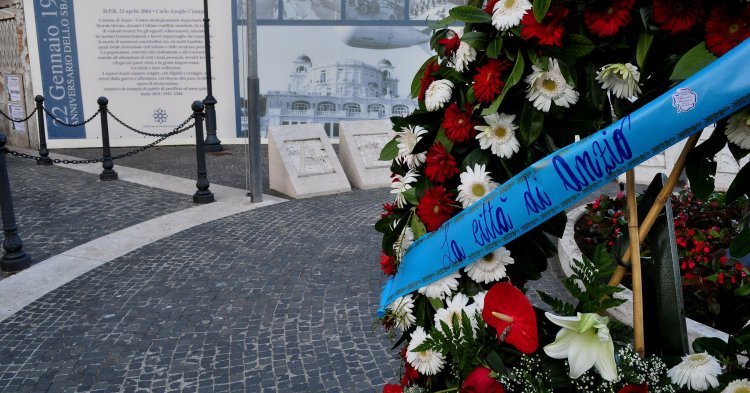Few people remember that the Resistance had a European aspect since the very beginning. Indeed, it showed up in several countries, and firstly in France. Moreover, as far as Italy is concerned, the first invitation to the citizens to take part in the Resistance against nazism and fascism was launched by Unità Europea (European Unity), the secret paper of Movimento Federalista Europea (founded by Altiero Spinelli in Milan after his liberation from Ventotene).
Today the paper is not secret anymore, but still is the core of MFE. Spinelli himself, who played an important role in the Action Party, went to Switzerland to look for other members of the Resistance exiled in other countries, in order to create a supranational movement for Europe, the Union of European Federalists.
One of the historical leaders of MFE was Luciano Bolis, inspector of the Justice and Liberty group, and Ligurian Secretary of the Action Party. Captured and tortured for days by fascists, he tried to kill himself in order not to betray the partisans, but he was hospitalised and then set free from the hospital by partisans. Bolis would become one of the founders and the first director of the Historical Institute of the Resistance of Liguria (ILSREC). His experience, collected in the book My Grain of Sand, proves the humbleness of an extraordinary man, and the book continues to be a model and source of inspiration.
Upon this historic bond between the Resistance and Europe, Norberto Bobbio wrote memorable pages, unfortunately often forgotten, in his essay Federalism in the political and cultural debate on the Resistance which acts as an introduction in Mulino’s edition of the Ventotene Manifesto. Indeed, those who fought for freedom in several countries launched the project of European integration, in order to prevent new European wars, overthrow the nationalism which had been the foundation of totalitarian regimes, and establish European stability for freedom won back and for democracies to be built.
The European Union is perhaps the most original and autonomous bequest of that history, the one less bound to the choices of the non-European winners. European integration has been the tool to guarantee peace, wellbeing and democracy after war and totalitarianism. In the same way, today, the completion of the process of unification is the condition to prevent the rebirth of nationalism, and the erosion of the rule of law and of the liberal-democratic regimes born after the Resistance.



Follow the comments: |
|
